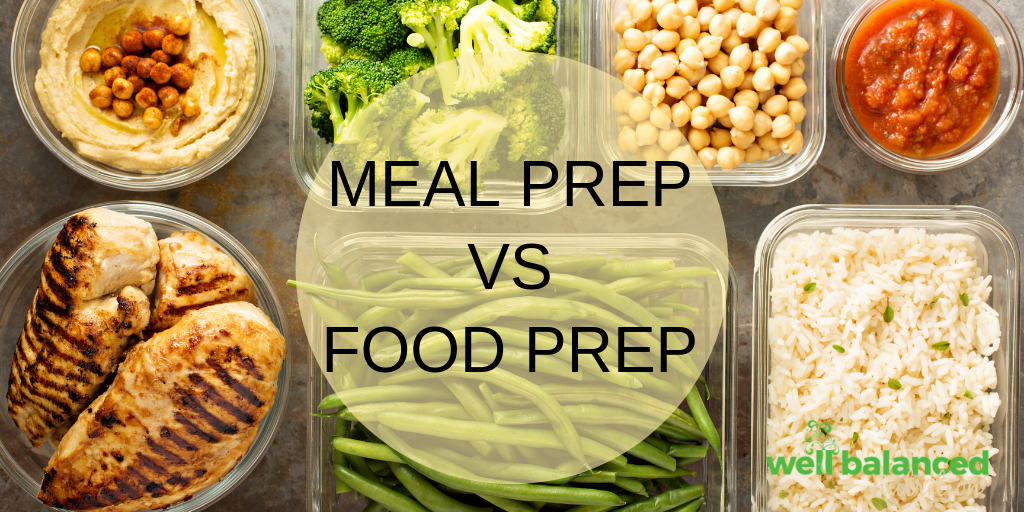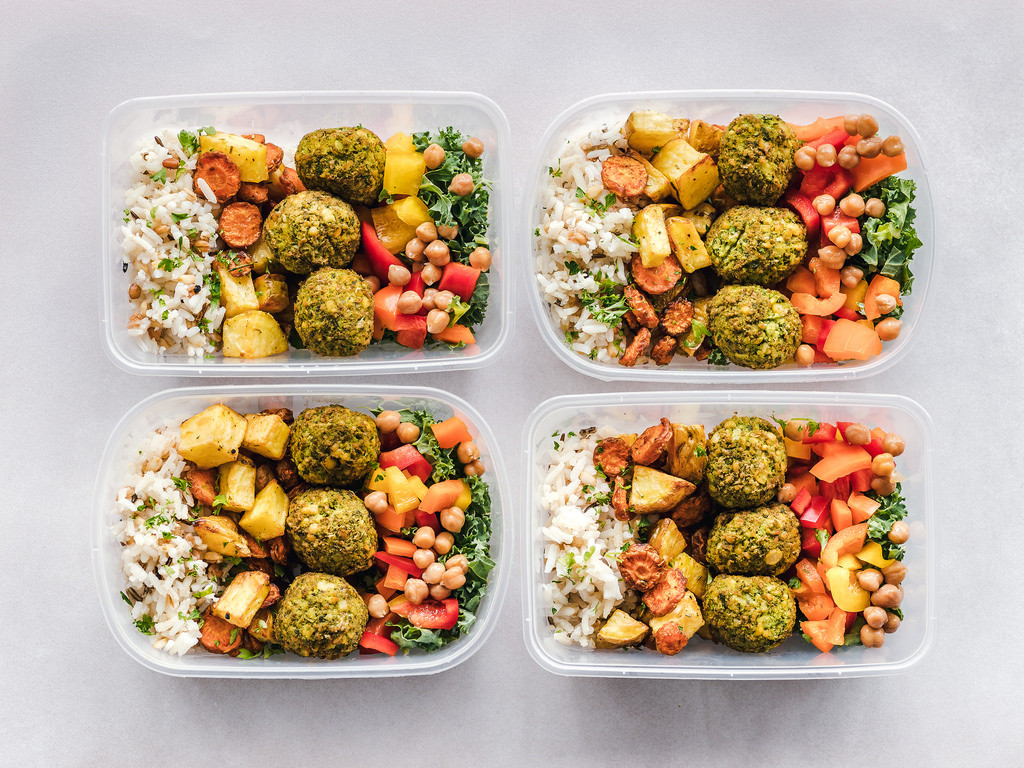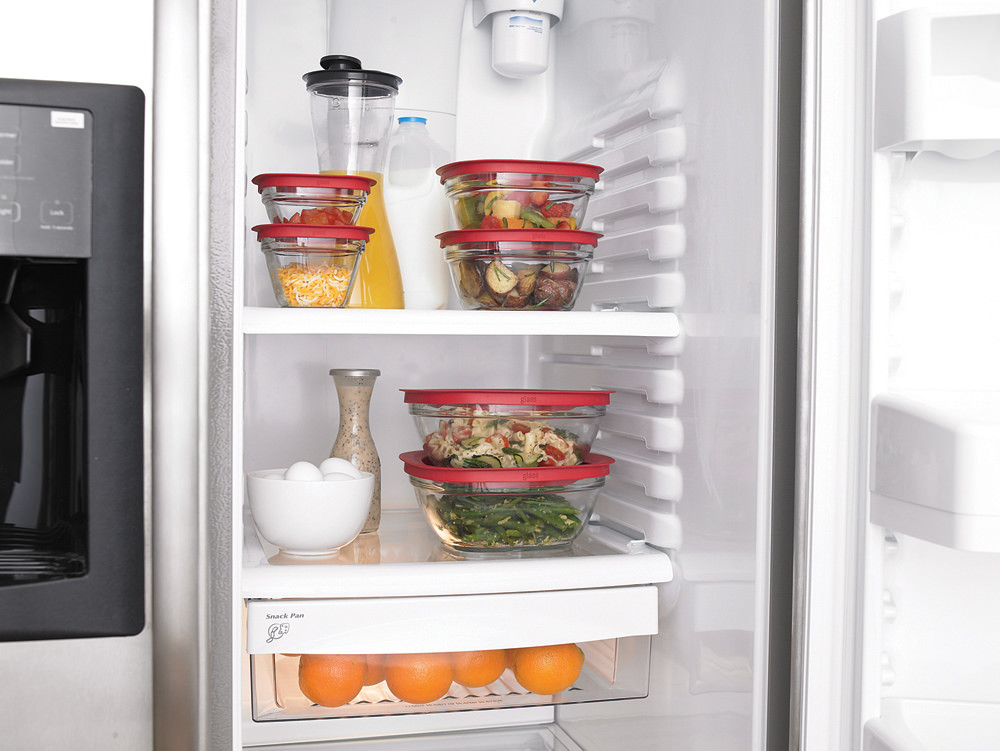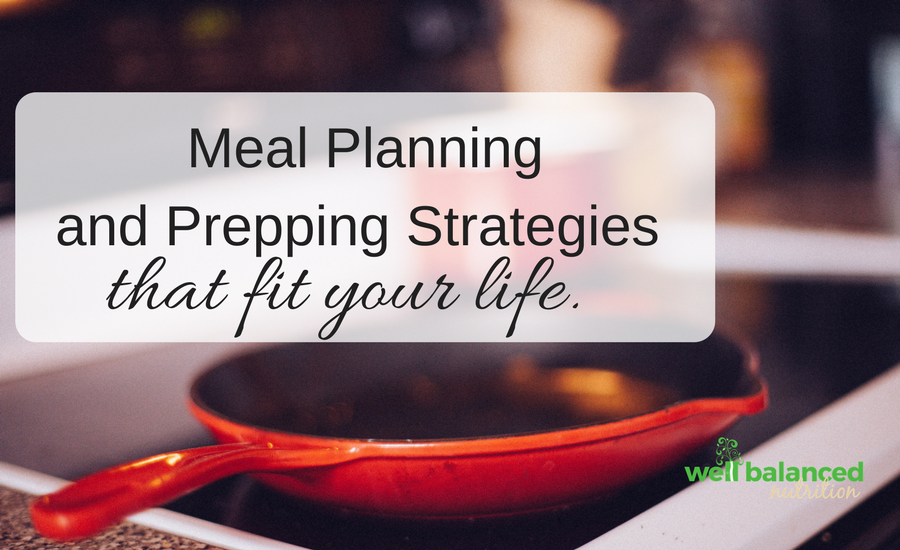
by Lucy | Mar 27, 2019 | Meal Planning
You know those pretty pictures you see on Instagram or Pinterest with someone’s meals prepared for the whole week? Maybe you think “wow, I should do that too.“
The Sunday meal prep phenomenon
Then after weeks of thinking about it, you buckle down one Sunday afternoon, spend 3 hours in the kitchen, and get the meals for the next 5-workdays chopped, prepped, cooked, and stored in individual containers. By Wednesday, you’re so over the brown rice, broccoli, and baked chicken that your favorite go-to takeout spots are looking better and better.
First of all, you’re not alone. This is completely normal. Our human brains thrive on a variety of nutrients; therefore, when we eat the same meal day-after-day, we get less pleasure each time we eat that dish. You may grin and bear it in an effort not to waste food (or the time you spent preparing the meals); however, consciously or subconsciously you may decide this meal prep thing just ain’t for you.
But I still want to eat at home more
Maybe eating the same meal(s) day-after-day did not pan out, but there are other options.
Last summer, I spoke with a client who decided to pull all of her favorite cookbooks out and prepare 3-4 new recipes each week. She came back a month later, feeling defeated, and expressed disappointment that she had only tried 2 new recipes total since our previous appointment. It turns out that she had a busy work schedule that included traveling at least two weeks out of the month and did not give her much downtime to try cooking new foods.
Together, we talked about options and solutions and I proposed she consider simplifying her food prep plans. All the recipes in cookbooks and Insta inspiration are great, but instead of thinking about preparing an entire meal we can start by incorporating food prep vs. meal prep.
What’s the difference between food prep and meal prep?
Whenever you think of a meal, I hope you picture the Well Balanced Nutrition plate, including half the plate filled with non-starchy vegetables (and/or fruits), happy protein, complex carbs, and a delicious fat to bring it all together.
I will admit, it can be overwhelming to think of incorporating all of the things, all the time. Each time you eat is an opportunity to practice becoming Well Balanced. Instead of preparing meals with every component of the plate, I recommend starting with food prep. This can include making 2-3 dishes that you can later mix-and-match to combine into a meal. For instance, you can prepare a few servings of chicken salad to eat with a simple mixed greens salad or sliced cucumber and whole grain crackers. There is almost always a batch of quinoa or rice in my fridge, which can easily turn into a power bowl or Brown Rice Salsa Salad.
Meal prep may look like this…

Food prep may look like this…

Food for thought
If you’ve been beating yourself up for not being a meal prep superstar this is a good chance to (1) be nice to yourself because we each need to figure out our own system. Next, (2) consider trying food prep instead of meal prep. Pick a few items you already feel confident preparing and try making those this week.
Not sure where to get started? No worries, we’re here to help 🙂

by Lucy | Mar 25, 2018 | Meal Planning, Well Balanced Wisdom
Meal planning and prepping take effort, skill and time, which makes it a bit challenging. The good news is that strategies and solutions exist to suit everyone’s needs. Let’s dive into your tendencies and your situation and how you could leverage them to your advantage. Below I make suggestions based on your tendency. If you don’t know what your tendency is, please read this blog post first.
Upholders – Since upholders readily meet expectations and get things done, they would do well with a meal planning service. Everything from the recipes to the grocery lists is done for you which can save you a lot of time. There are many options and a few of my favorites include Super Healthy Kids Meal Plans (done by registered dietitians and family friendly), My Happy Plates (a local company, includes grocery delivery service), No More to Go (has 3 options: cooking-for-2, gluten-free and family).
Obligers readily meet outer expectations that others impose but struggle to meet the inner expectations they want to impose on themselves. Therefore, they must find creative ways to set up some external accountability. Meal prepping partners or groups can keep obligers motivated and can be a ton of fun. Who wouldn’t enjoy cooking with your friends or neighbors and drinking wine while prepping your meals? Your group can meet weekly like in this plan or you can select a few freezer meals that can be pulled out at any time. Here is a great done-for-you meal prep party plan that includes recipes and all.
Furthermore, obligers tend to be motivated to do things that benefit others. These ideas could help:
- Have a reoccurring dinner date with a friend where you take turns cooking.
- Commit to bringing a home cooked meal to a neighbor or friend. Double the recipe so you can eat it too.
- View the responsibility of meal planning and prepping as something important you want to role model for your children.
- Make a pact with your bestie that you can’t do X until you’ve meal planned and prepped for the week and ask them to hold you to your word.
Questioners like to do the research, decide for themselves, customize things to fit their needs and act with good reason. Questioners will do well if they’ve already made their mind up to meal plan and prep. If they haven’t, they might need to explore why meal planning is important to them. Done-for-you meal planning services could work well, but it is likely questioners will want to customize it to their style and preferences. They will only stick to it if the plan is logical and efficient, which could simply take a little trial, error, and tweaking to suit their needs.
Rebels – do best when they take it one day at a time. They may want to keep a stocked kitchen and have several meal ideas that can be thrown together in a pinch. Having a loose plan, such as 3-4 meal ideas for the week is better than having a specific dinner for a specific day of the week (which could also be true for some questioners and obligers).
Hate to cook? – Clean-eatz is perfect for those who just want someone to cook for them. Another idea is to trade services with their friends that do enjoy to cook. For instance, a mom of young kids who likes to be in the kitchen but doesn’t have the distraction-free time to do so could pair up with a mom who hates to cook but would love to play with the kids.
Cooking for one? Cereal for dinner again? You can do better! It’s really easy to slack off at dinner time when you only have your own mouth to feed. Using the above strategies like inviting a friend, cooking for someone else or having a meal prep party might work well for you.
Hate leftovers? When cooking for one, finding the right recipes is important. You probably get turned off by most recipes you see because you’d be eating the same thing for DAYS. I really love this roundup of healthy single-serving meals and I think you will, too.
Food for thought:
There is no one-size-fits-all approach to meal planning and prepping, but it’s an important part of healthy eating. Without at least a little forethought, you’ll be eating cereal or fast food most nights. Thinking about your unique style, situation and needs can help you find the strategies that work. This will take some trial and error. The important thing is that you keep making an effort to choose nourishing foods that meet your health goals. It doesn’t have to be perfect and it may look different each week, but what matters is that you are putting in the effort continuously. That’s when you finally find your groove. Just don’t give up.

by Lucy | Mar 11, 2018 | Meal Planning, Well Balanced Wisdom
In March, we are delving into the subject of meal planning by breaking it down into a series of blog posts. Last week, you learned the significant differences between a done-for-you meal plan and the process of meal planning.
Meal planning on your own terms will help you build a sustainable habit that supports Well Balanced eating in the long run. No process is perfect and creating one that fits your needs is key. To do this, you have to jump in and go for it, learning and adapting to what you need along the way. Here are some things to keep in mind as you dive in.
Be flexible. Know it’s good to have a plan, and it’s okay to make a different choice at the last minute. Don’t beat yourself up for this. Trust that you can make a wise decision, even if it’s not quite what you planned.
Start simple. Healthy eating doesn’t need to be complicated or fancy. Pick a protein-rich food, a veggie (or two) and a complex carbohydrate. Round it out with a bit of your favorite healthy fat and call it a day. Combination meals, like chili, come in handy because they can include all this in one dish.
Jazz it up on the weekends. Have a little fun, try a new recipe or make your favorite fancy meal when there is extra time. While you are at it, make double the amount you need so the leftovers can last through the week or go in the freezer for another time.
Build off what you have. Take stock of what is in your refrigerator, freezer, and pantry. What can you add to your inventory to make a Well Balanced meal? Have canned beans, tomatoes and tomato sauce? Pick up the rest of the ingredients for chili.
Get inspired by the season. A stroll through the Farmer’s Market gives Lucy the inspiration she needs for a meal. Farmers often have great ideas and tips for cooking with veggies. Whether trying a new veggie or looking for a new way to enjoy a staple, ask your friendly farmer.
Go with what’s on sale. When you need to follow a budget, let the sales guide you. Are strawberries on sale? Load a bunch in your cart and think outside of the box to incorporate them in creative ways. A quick search online can help.
Food for thought: What do you need most when it comes to a meal planning process that will work for you?







